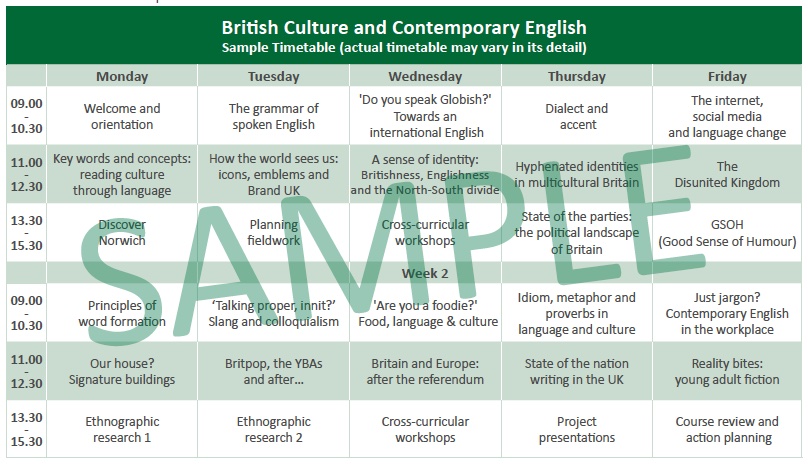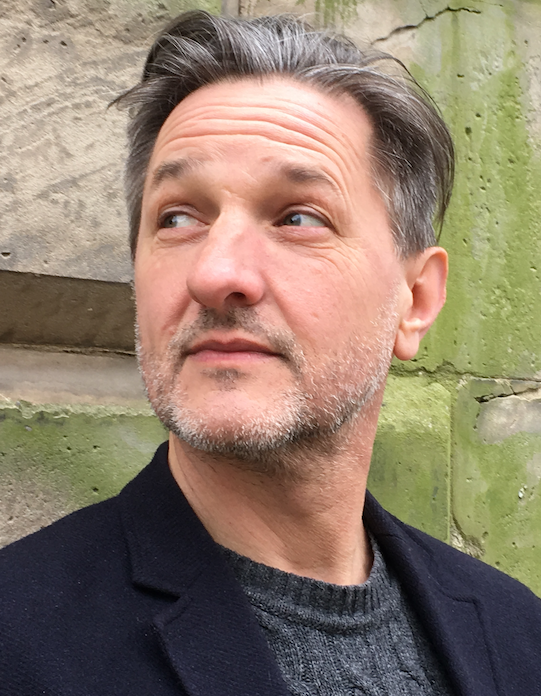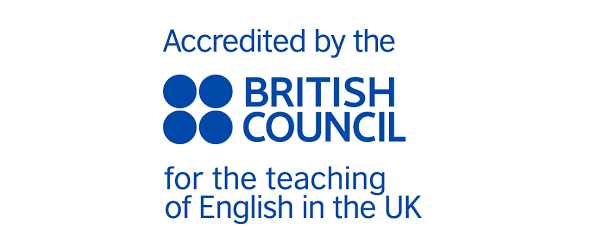Early-bird offer for 2026:
25% discount on programme fees!*
In this course you will look at recent changes and developments in the English language, exploring how such changes are reflected in the wider cultural landscape. The course will give you the chance to refresh and update your knowledge of the language, and look at how it is being used in a variety of different contexts. As a course participant you will have opportunities to discuss and reflect on cultural issues affecting language change and create practical classroom activities using contemporary English.
" I got an abundance of creative ideas I can use in my classes. It was a wonderful experience and an eye-opener. "
Participant - 2023
Is this course for you?
Teachers and ELT professionals at all levels interested in developing their students’ awareness of the rich cultural diversity of life in Britain today and changes in contemporary written and spoken English
17 - 28 August 2026
2 weeks or join us for the first week only
Registration fee: £150 £115
Course fee: 2 weeks: £1170 £878
1 week: £598 £448
Trinity CertPT qualification (optional): £325
Homestay (half-board): £301
Residential (self-catering): £301
More information
Course content
English today is a rapidly-changing patchwork of accents, dialects, slangs and regional variations. This is a reflection of a constantly evolving cultural landscape. This course looks at the varieties of English used around the world, and specifically in the UK. We will look at changes in British social and cultural life and how these can shed light on identity, class and subcultures.
" I received such rich and important information, advice and knowledge from excellent tutors who were patient, lovely and respectful."
Participant - 2023
" I take away amazing and varied activities I will be able to introduce into my classroom. "
Adhan - 2023
Timetable
This course consists of 50 hours of tuition, delivered between 09:00 and 15:30, Monday - Friday. You will also take part in cross-curricular workshops on a variety of topics, and each course includes a free evening and weekend programme of social and cultural activities and trips.

Further Information
Specific course content comes from feedback you and other participants give us through pre-course questionnaires, identifying your needs and priorities.
Time will be built into the course for reflection and for you to consider how to adapt ideas from the course to your classroom in your own professional contexts.
NILE offers various accommodation options, including homestay with carefully selected hosts and residential accommodation at the University of East Anglia. NILE’s dedicated student welfare team can be reached 24 hours a day.
All NILE courses involve a significant element of English language improvement and/or the development of language awareness.
*Offer valid until 1st May 2026. Read the full terms and conditions for the 2026 early-bird offer
Course Leader: Chris Rose
 Chris has worked as a teacher, writer and trainer across Europe, as well as in India and China. He worked for the British Council in Italy for many years, where he integrated English teaching with arts and cultural projects. He has written a number of readers for Macmillan.
Chris has worked as a teacher, writer and trainer across Europe, as well as in India and China. He worked for the British Council in Italy for many years, where he integrated English teaching with arts and cultural projects. He has written a number of readers for Macmillan.
He has worked with NILE for fifteen years, and also taught at a number of universities in the UK.
He holds a PhD in Creative and Critical Writing, and under the name ‘C.D. Rose’ has published four books of literary fiction.
He is currently Royal Literary Fund Fellow in Residence at the University of Manchester Library.
Available dates:
| Course dates | Location | Course length | |
| 17 - 21 August 2026 (First week only) | Norwich | 1 week | |
| 17 - 28 August 2026 | Norwich | 2 weeks |



